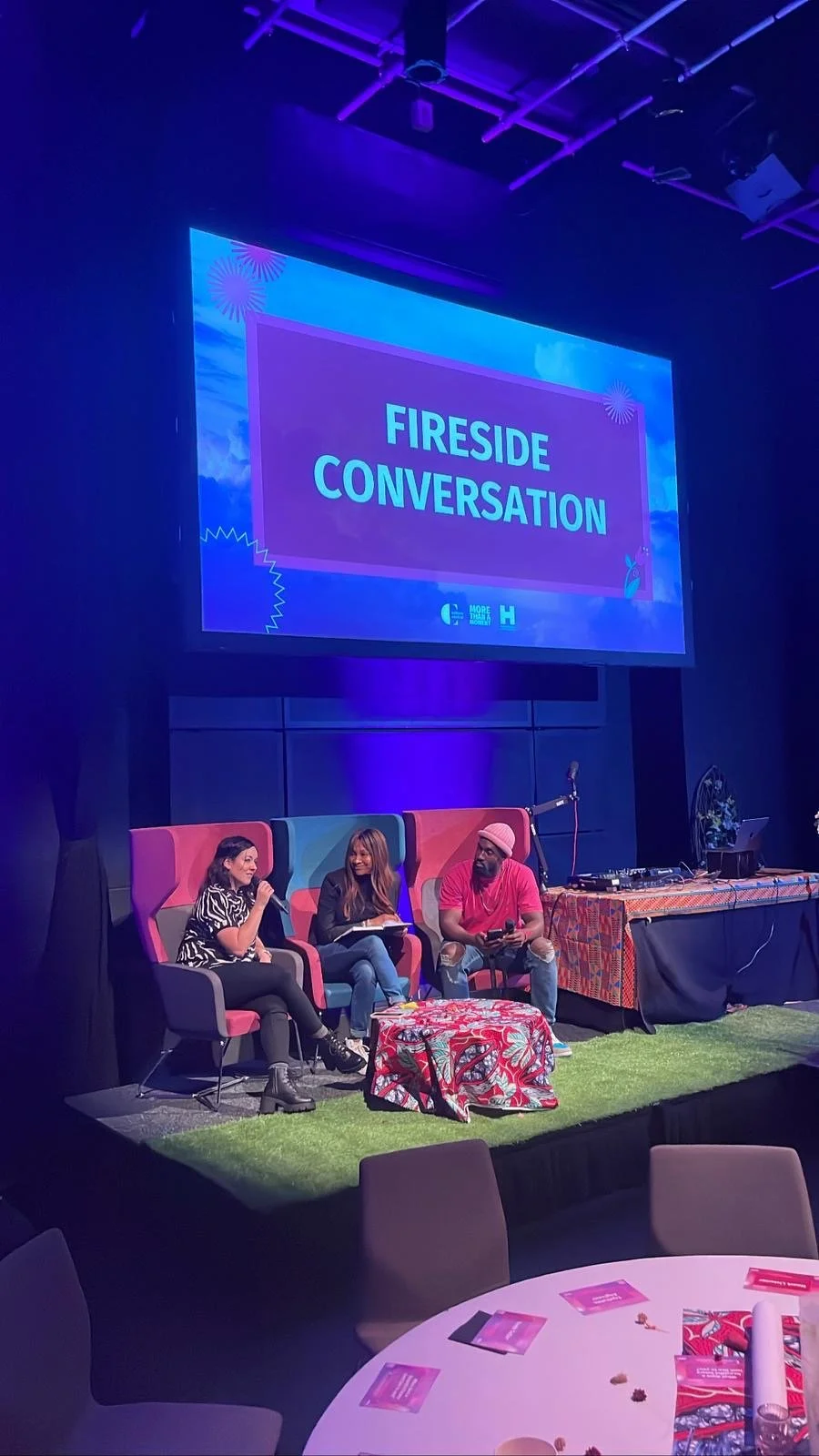A Roadmap for the English Culture Sector's Future - reflecting on speaking at More Than A Moment Summit
5 mins read time
It feels like a long old time ago now, but in the wake of my speaking engagement at the More Than A Moment Beautiful Futures Summit at Birmingham Hippodrome back in October, I was tasked with probing into the depths of resource scarcity within the cultural sector. Omg, not only was this massive but where do you actually start when trying to take down the system?!?!
This is a topic that’s on my mind a fair bit. It comes up with clients nearly daily, as we tackle the many challenges of modern operations in today’s digital and grind-centric [insert here: consumerist] world. I find myself supporting people in a mentoring capacity or as a critical friend through some pretty tough times from stark and often shockingly short-sighted funding cuts, to systemic challenges, breaking down barriers to, mindset, mental health, resilience, leadership skills and much more.
This issue is not isolated to our field - the cultural sector of course; it's a pervasive challenge across numerous industries. The pressing question posed to me and my fellow speaker Sindy Campbell (see pics below), was…
‘How do we construct novel systems that not only bridge the gap but also empower creatives to achieve their aspirations?’
For me, the first step is critical self-awareness. We need to ascertain whether to integrate into the current system, deconstruct it, or completely bypass it. This involves crafting pathways that enable a more intuitive navigation through the system, akin to a strategic game where we must decide which pieces to move and when. This is how I approach my work and whilst that is by far easier said than done, in practice, it begins with knowing how to navigate the system.
Perhaps we could start a movement towards a blueprint for a new infrastructure. The wonderful folks at More Than A Moment are certainly on that path.
But what does the practical application look like? What shape could this new infrastructure take? I believe, the answer lies in fostering an entrepreneurial mindset and ensuring we're not so consumed in the doing that we lose sight of continuous foresight and ongoing development. Easy for me to say. Again. A paradigm shift at the systemic level necessitates top-down investment and the interlinking of various societal aspects, such as housing, community development, healthcare, education, and transportation. So that’s all well and good but what about cultivating a groundswell of change from within? That’s surely massive?!
Can an internal groundswell induce the conditions for prosperity within out cultural sector? Indeed, by advocating for policy changes and instilling values-driven leadership characterised by compassion, skilled (and trained) management (see my previous blog post about that here), and leaders who embrace vulnerability, we can set a precedent. It's about asserting our worth, flattening organisational hierarchies, enhancing the quality of arts education, and learning to monetise our practice independently of traditional funding streams. And starting with WHY.
The importance of intersectoral collaboration then…
Why is it critical to collaborate beyond the cultural sector? Because it introduces new methodologies and perspectives, challenges us to grow, and fosters learning. It's through such partnerships that we can realise novel ideas and opportunities. This approach is particularly beneficial for Black, underrepresented, and working-class creatives. By adopting a growth mindset, we can forge our own conditions for success, circumventing traditional barriers to entry and then continued success in the creative industry.
How do we secure sponsorship and investment beyond the limited funding available? It's about taking the initiative to cold call or directly request support, but not without a solid business case to back it up. Again, always come back to your WHY.
To summarise, what was a fabulously though-provoking event and my reflections since… I think that the path to a vibrant and more inclusive cultural sector is multifaceted. It demands a shift in both perspective and practice, underpinned by the courage to envision and build an updated, fit-for-purpose system where every creative can access education, support and training, make informed choices, seek out what’s right for them in the way that they want to work and then once working in the sector (without having to play any games or fit into any mould), have the opportunity to continue to grow and thrive.
If you need think you need support or a steer in something you’re working on, I could be the specialist to help you solve an organisational or personal challenge…
Email me on: hello@amydaltonhardy.co.uk






